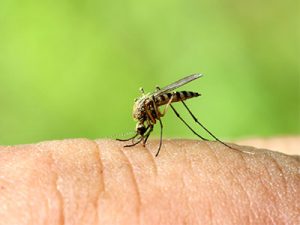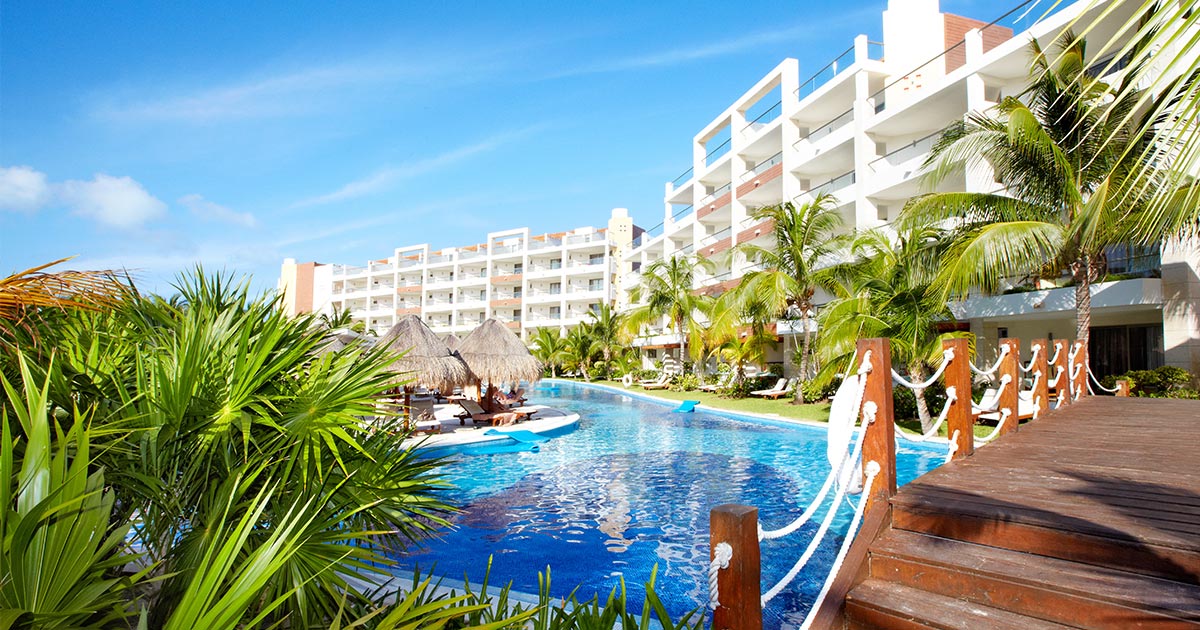There is no doubt that mosquitoes are a nuisance. Slapping at the flying armies of uninvited “guests” at Florida’s beaches and hotels is sometimes enough to discourage the hardiest among us. Mosquitoes are annoying in numerous ways: The tiny flies are hard to avoid, and repellents have only limited effectiveness. In addition, some mosquitoes transmit serious diseases. In fact, they are one of the primary health hazards worldwide.
Mosquitoes 101: What You Should Know
 More than 3,000 varieties of mosquitoes exist, and they are found everywhere on Earth except Antarctica. The female mosquito is the one that sucks human blood, and it does so, not for food, but as nourishment for her eggs. Typically, mosquito bites cause a bit of redness, swelling, and itching, but they are not seriously debilitating. However, some mosquitoes found in Florida carry diseases, including the West Nile and Zika viruses, Eastern equine encephalitis, and dengue fever, among others.
More than 3,000 varieties of mosquitoes exist, and they are found everywhere on Earth except Antarctica. The female mosquito is the one that sucks human blood, and it does so, not for food, but as nourishment for her eggs. Typically, mosquito bites cause a bit of redness, swelling, and itching, but they are not seriously debilitating. However, some mosquitoes found in Florida carry diseases, including the West Nile and Zika viruses, Eastern equine encephalitis, and dengue fever, among others.
The most common breed of mosquito in Florida, Aedes Aegypti, normally only strays a distance of a few blocks, and it prefers the company of humans. Although the male feeds on flower nectar, females typically concentrate on biting humans and producing eggs. Their life span varies from a couple of weeks up to about six months.
Luckily, a lot is known about the habitats, breeding habits, and life cycles of the tiny flies. In Florida, mosquitoes are the most common, and most annoying, in the summer. Some municipalities routinely spray to keep mosquito populations under control and take measures to control standing water, a prime breeding ground for mosquitoes.
Natural Ways to Get Rid of Mosquitoes
Even though global attempts to control mosquitoes are largely unsuccessful, there are some effective ways to make a local environment less attractive to the pests. Successful efforts at control begin with discouraging egg-laying in the environment. Once mosquitoes become adults and take to the skies, they become much harder to manage, so elimination of breeding areas is vital. The mosquito life cycle ‒ egg, larvae, pupae, adult ‒ can take as little as about 10 days. However, the female mosquito lays eggs in water-filled containers, and they might take up to several months to hatch. Once they become aquatic larvae, the progression to adult mosquitoes spans only several days.
Mosquitoes Have Natural Enemies
Air circulation inhibits mosquito development. Even though the tiny insects are hardy, allowing the wind to blow freely through the landscape can help reduce the swarms of mosquitoes. Ceiling fans help keep mosquitoes away from hotel patios and outdoor cafes.
In large, open areas, resist the temptation to plant tall windbreaks: Allow the air to circulate freely, bringing cooling breezes and helping keep mosquito populations at bay.
Repel Mosquitoes With Flowers
Citronella is commonly called the “mosquito plant,” because its scent is repellent to mosquitoes. The citronella geranium produces lavender flowers that are great landscape elements, whether planted in the ground or in containers. But there are numerous other options for green plants and ornamental flowers to control mosquitoes. Showy, colorful flowers ‒ marigolds and mums, alliums and floss flowers, among others ‒ come with a “double whammy” of benefits. In a public landscape, they also help control other pests, including aphids, ants, ticks, and fleas.
Scent the Landscape to Get Rid of Mosquitoes
Culinary herbs like basil, mint, rosemary, and lavender not only deter flies and mosquitoes but also imbue a landscape with a new dimension. Some hotel chefs would welcome an on-site herb garden! They are visually attractive, and they perfume the air as well, adding another dimension to the landscape. Spot some of these popular herbs in the garden and reap the multiple benefits! ASI designers will suggest ways to integrate pleasant scents as well as pleasant views into your outdoor landscape. We also can work with your hotel restaurant to supply some of their culinary needs.
Add Drama With Carnivorous Container Plants
Carnivorous plants used for dramatic purposes actually thrive in mosquito-prone areas. Pitcher plants are ideal for moist areas, and they will devour flying insects for the nutritious benefit they provide. Other plants that “eat” mosquitoes include Venus flytrap and drosera; both can be planted in pots near entrances and exits ‒ both indoors and out ‒ to help prevent them from entering a building.
Encourage Mosquito Predators
Mosquitoes are not without natural predators. They are part of a preferred diet for some birds, and for bats and spiders. Purple martins, in particular, feast on mosquitoes. Place properly designed purple martin “hotels” in a hotel or resort landscape to help keep the mosquito population under control. The birds typically arrive in Northern Florida from South America in January and February prior to mosquito season, so you can help them get settled before mosquitoes become a huge problem. Bats and spiders also feed on mosquitoes. Although you might not want to encourage bats to take up residence near your hotel, bat boxes in outlying areas can help with mosquito control. Also, it’s best to allow friendly spiders free reign in the garden. Landscape maintenance crews should not be quick to remove spider webs, because that will deny a habitat to beneficial mosquito predators.
Use Cedar Mulch
The scent of cedar repels all sorts of pests, so cedar mulch is a good choice for public landscapes. Remember, though, that if there is no hint of scent left, the mulch is no longer effective as a mosquito repellent.
Eliminate Standing Water
Water features are a favorite feature of Florida resort landscapes, and circulating water naturally discourages mosquito egg deposits. Work with a professional to ensure that your hotel and resort grounds contain no areas that encourage water from sprinklers to pool and stand. If there are stagnant ponds or low-lying areas where water collects, work to eliminate them from the property. If you have a mosquito problem, consider installing bubblers and pumps that are remotely activated. Position mosquito traps or automatic repellent devices in problem areas.
Keep Tall Grass and Weeds Mowed
Mosquitoes hide in tall grass, especially if it’s near water. Keeping green space well-manicured will help alleviate a potential mosquito problem. Florida, with its emphasis on outdoor lifestyles, is a wonderful place to vacation. But swatting mosquitoes is not a favored sport anywhere, especially with resort-goers, so rely on the advice and assistance of landscape design and maintenance experts.
ASI Landscape Management, with a long-standing tradition of excellence in hotel and resort landscaping, has offices in both Tampa and Orlando. We stand ready to help you design a landscape full of beauty and sensory delight. But we’ll also help you get rid of mosquitoes and discourage them from making it their future home. Please schedule an appointment to discuss your needs.


